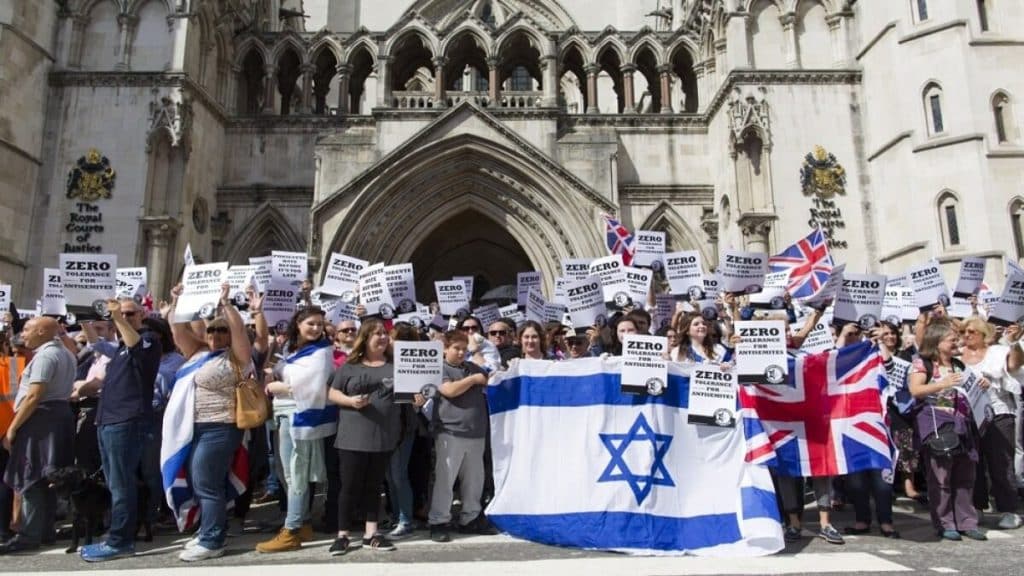The beginning of lobbying for Zionism marked the birth of tactics that led to significant electoral influence in America.
In the late 19th century, as Palestine entered a new era, “Zionism” emerged as a foreign phenomenon, with roots going back to the 16th century and the project of evangelical Christians in Europe, who saw the return of the Jews to “Zion” as the fulfillment of divine promises and the prelude to the second coming of Christ. They saw the Jews as a people, not just religious followers, and they played a prominent role in America and Britain.
In his book “Lobbying for Zionism on Both Sides of the Atlantic,” Israeli historian Ilan Pape explains how, for more than a century, Zionist lobbying was able to convince American and British politicians to support Israel and ignore the rights of the Palestinians unconditionally. Pape, who is known for his critical views on the “Nakba” and the displacement of Palestinians, emigrated to Britain due to pressure after teaching in Haifa and is now a professor of history at the University of Exeter and director of the European Center for Palestine Studies.
We have already published the translation of the first chapter of Pope’s book, entitled “Christian Pioneers of Zionism”, for the first time in Iran.
Part One, Part Two, Part Three, Part Four
Parts One and Two of Chapter Two of this book, entitled “Lobbying for the Balfour Declaration”, have been published previously. The third and final part of this chapter is as follows:
The Fourth Zionist Congress in London was the first time it had been held in England. At first, Herzl was not very keen on holding the event in such a place, but seeing the poverty of the Eastern European Jewish immigrants in this city, he was convinced that they might be more prepared than others to emigrate to Palestine.
Herzl wanted to prove that Zionism was no longer just a concern of the Basel intellectuals and found the opportunity to expand his vision of establishing a Jewish state in Palestine. He planned to hold the Zionist Congress as grandly as possible, hoping that it would be covered by the British press and that the voice of Zionism would thus reach millions of people.
The Fourth Zionist Congress, despite being held in a poor neighborhood, was transformed into a lavish and lavish banquet, an event that Herzl saw as an opportunity to bring Zionism to the British press and to strengthen lobbying in the country.
The delegates to the Fourth Zionist Congress were rewarded for their hosting in this relatively humble Mile End location with a lavish banquet and a seven-course meal at the Queen’s Hall, Langham Place. The meal included turtle soup, poached salmon, roast goose, and lemon jelly.
The invitation to the event depicted a group of Jews being guided to Palestine by an angel.
In the background, Roman soldiers were seen driving away a 19th-century Jew in mismatched clothing, and a closer look revealed that the figure, dressed as a rabbi, bore a familiar resemblance to Christ. The drinks at the congress were provided by the Rothschild family, exclusively through the Palestine Kosher Wine Company in the Zionist settlement of Rishon LeZion.
The Zionist Congress, with all its pomp and circumstance, was about to take place without its star. Herzl arrived in London on 7 August 1900, suffering from a high fever and illness, and spent the first few days of his trip in the Langham Hotel.
Although he had faith in British policy, Herzl doubted the ability of British medicine to provide adequate treatment, and his chosen doctor was a Zionist trained in Vienna. Leopold Liebster, a doctor from the East End of London, met these specific criteria. After successful treatment, Herzl was ready to take the next step in his Zionist lobbying in Britain.
Herzl gave several lengthy speeches during the congress. The meeting was taking place against the backdrop of a new wave of attacks on Jews, this time in Romania, the homeland of some of the audience. He insisted that the only way to prevent future pogroms (organized attacks on Jewish communities in Eastern Europe, especially in Tsarist Russia, often accompanied by massacres, looting, and displacement) was to obtain a charter for the establishment of a Jewish state from the Ottoman Empire, which at the time controlled Palestine. But other prominent leaders of the Zionist movement did not believe that obtaining such a charter should be the sole priority of a purely Zionist congress.
Zionist leaders wanted to provide resources for the colonies already present in Palestine and to discuss the practical aspects of the idea of Jewish nationalism in Palestine, including what language they should speak, what the purpose of the educational system should be, and other aspects of this new political entity.

